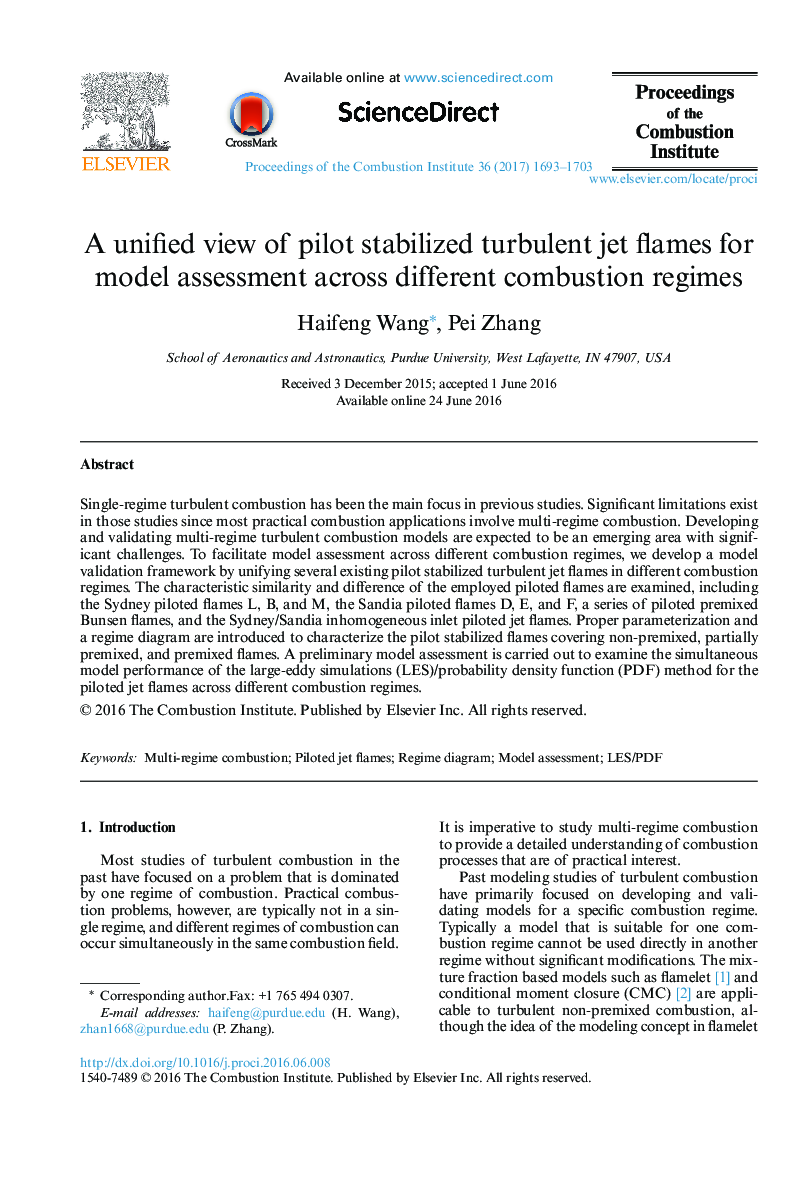| Article ID | Journal | Published Year | Pages | File Type |
|---|---|---|---|---|
| 6477971 | Proceedings of the Combustion Institute | 2017 | 11 Pages |
Single-regime turbulent combustion has been the main focus in previous studies. Significant limitations exist in those studies since most practical combustion applications involve multi-regime combustion. Developing and validating multi-regime turbulent combustion models are expected to be an emerging area with significant challenges. To facilitate model assessment across different combustion regimes, we develop a model validation framework by unifying several existing pilot stabilized turbulent jet flames in different combustion regimes. The characteristic similarity and difference of the employed piloted flames are examined, including the Sydney piloted flames L, B, and M, the Sandia piloted flames D, E, and F, a series of piloted premixed Bunsen flames, and the Sydney/Sandia inhomogeneous inlet piloted jet flames. Proper parameterization and a regime diagram are introduced to characterize the pilot stabilized flames covering non-premixed, partially premixed, and premixed flames. A preliminary model assessment is carried out to examine the simultaneous model performance of the large-eddy simulations (LES)/probability density function (PDF) method for the piloted jet flames across different combustion regimes.
